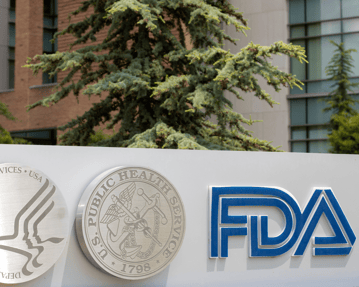FDA Encountering Strong Opposition to CDS Final Guidance
The FDA guidance for clinical decision support (CDS) programs was intended to provide clarity for this important category of device products, but the guidance has run into unexpected headwinds. The agency has received two requests that the guidance be withdrawn pending a review by FDA commissioner Robert Califf, setting in motion a process that may not be resolved before the end of the year.
The FDA process for reviewing citizen petitions allows the agency up to 180 days to provide an initial reply when the commissioner is required to respond. The earlier of the two citizen petitions was filed in February 2023, while the second was filed in July, indicating that the agency has until January 2024 to provide the initial response. Should the FDA reissue the guidance, it would presumably be in draft form and go through the comment process with stakeholders, which would require a minimum of 60 days, potentially up to 90 days.
The FDA stated that the guidance clarifies the types of CDS software that do not fall under the definition of a medical device as characterized by the 21 preamble for the final guidance indicates that the agency deleted mention of a risk framework by the International Medical Device Regulators Forum in response to comments on the draft, but one of the petitions argues that the final guidance reflects an overestimation of risk on the FDA’s part.
The February 2023 petition by the Clinical Decision Support Coalition (CDS Coalition) requests that the FDA commissioner withdraw and repropose the guidance to allow a CDS product to recommend a single diagnosis or a single treatment pathway rather than offer multiple options. The CDS Coalition stated that the time-critical nature of medical decision-making is not an absolute bar for exemption from regulation under the 21
The Coalition letter stated that the FDA has examined the question of risks on three occasions, most recently in 2022, and while the previous report in 2020 identified four adverse events, no additional such events were registered in time for the 2022 report. The Coalition stated also that while the courts do not view guidance development with the same deference as rulemaking, the process for guidance development is similar to the process for rulemaking, and the guidance departs sufficiently from the text of the Cures Act to suggest that a court might dismiss the FDA’s interpretation of the Cures Act.
The second petition is from a professor of law at the University of Florida, Barbara Evans, who urged the FDA commissioner to rescind the guidance because the guidance deviates from the 21
The FDA commissioner should either conduct an internal investigation into the guidance or disclose its justification for the belief that the guidance does not impinge on the First Amendment, Evans wrote. She said the guidance has the effect of silencing the output provided by the CDS software, an outcome that gives standing to those who wish to receive that output to challenge the guidance.
Evans said this guidance is not the first time the FDA has acted to limit speech, making note of a July 2022 guidance for laser-assisted in situ keratomileusis (LASIK) that was criticized by stakeholders as an intrusion on the First Amendment. She stated that FDA guidance's are difficult to challenge in court and can have the effect of regulation because of the difficulty of mounting a legal challenge, particularly given that courts are typically reluctant to hear such cases until the FDA enforces the guidance.
Other entities have requested that the FDA reconsider the guidance, although in a less formal request. The Electronic Health Record Association wrote a Dec. 6, 2022, letter to the agency stating that decision alerts built into electronic health records are at times created and configured by provider organizations. EHRA stated that since the Office of the National Coordinator has oversight of EHRs, there is some ambiguity in terms of which agency is primarily responsible for the convergence of EHRs and CDS functions. The letter also poses the question of how the agency intends to regulate software with CDS functions that are already on the market, a particularly important question given the potential for disruption in patient care.
For additional resources contact the Marketing department
Phone: 888-633-6272
Medmarc is a member of ProAssurance Group, a family of specialty liability insurance companies. The product material is for informational purposes only. In the event any of the information presented conflicts with the terms and conditions of any policy of insurance offered from ProAssurance, its subsidiaries, and its affiliates, the terms and conditions of the actual policy will apply.
Copyright © 2026 - Medmarc
